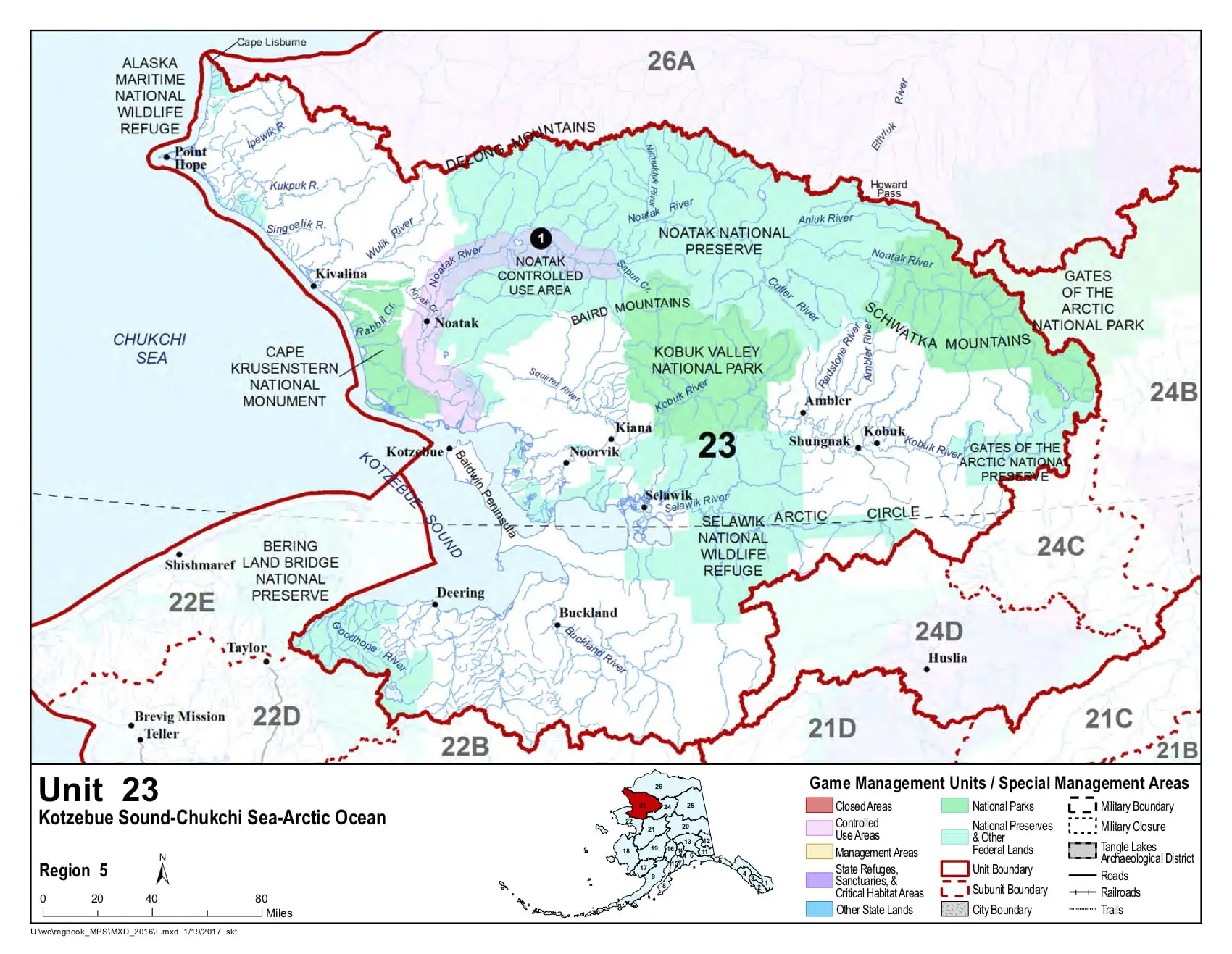Story from LSON
Texas hunters dreaming of an Alaskan caribou adventure may find their options disappearing.
The Department of the Interior is proposing closing 60 million acres of Alaska federal lands to hunting to all but local subsistence hunters.
The land, in northwest Alaska, is home to the Western Arctic Herd, the largest caribou herd in the state. In 2019, the herd was estimated to include 244,000 animals, down from a high of 490,000 in 2003, but above the 201,000 estimate in 2016.
The proposal would close all federal lands within Game Units 23 and 26A to moose and caribou hunters who aren’t “federally qualified subsistence users” from Aug. 1 through Sept. 30, which covers the nonresident hunting season for the units.
The Western Arctic Herd Working Group said the herd has a harvestable surplus of 10,000 to 14,000 animals. About 10,000-15,000 caribou are harvested from the herd each year by subsistence users from about 40 subsistence-based communities in northwest Alaska. These hunters have bag limits of five caribou per day, with no closed season on bulls and an 8-plus month season on cows. Subsistence users are Alaska residents who live in rural areas within certain boundaries, and are regulated by a Federal Subsistence Board.
Since 2016, nonresident and nonlocal Alaska hunters harvested about 250 animals from the herd, about 2 to 3 percent of the total harvest. Before 2016, they took between 500-800 animals each year.
A public hearing will be held April 23 from 5 to 7 p.m. (AK time) by teleconference. The teleconference number is (877) 918-3011. The Passcode is 8147177



1 comment
[…] region in question is home to the largest caribou herd in the state, according to Lone Star Outdoor News. Known as the Western Arctic Caribou Herd, it numbered an estimated 244,000 animals as of 2019. […]
Comments are closed.